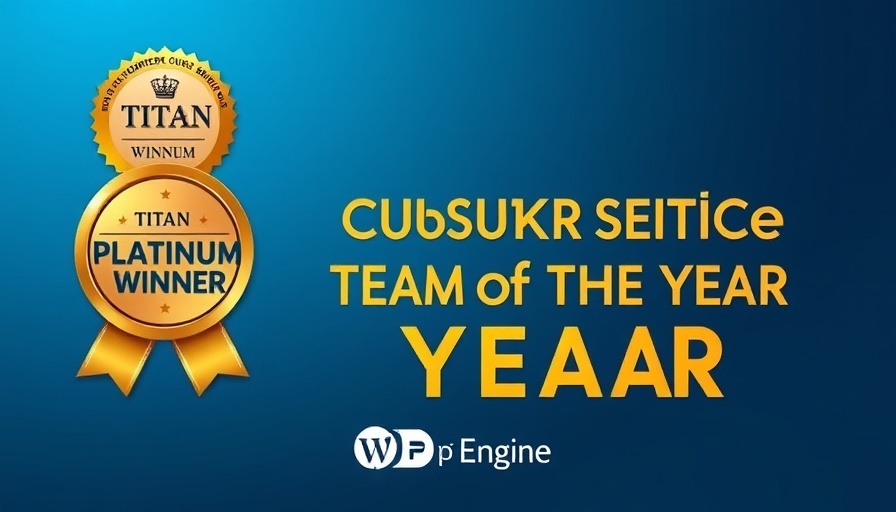
Unveiling the Importance of Meta Tags in SEO
For many WordPress users, meta tags might seem like invisible quirks of web design, but they are fundamental building blocks for effective search engine optimization (SEO). These hidden elements act as a bridge between your content and search engine algorithms, significantly impacting how your pages are indexed and ranked. By understanding and optimizing your site's meta tags, you can enhance visibility and drive more organic traffic to your WordPress site.
What Are Meta Tags and How Do They Work?
Meta tags are snippets of text that describe a page's content and can influence how your site appears in search results. They don’t appear directly on your page but reside within the <head> section of the HTML. Key types of meta tags include:
- Title Tag: This defines the title of your page as it appears in search results.
- Meta Description: A brief summary of your page's content that can entice users to click.
- Robots Meta Tag: This instructs search engines on how to interact with your page, particularly whether to index it or follow its links.
Properly formatted meta tags can improve your click-through rate (CTR) by providing clear, concise information that helps users determine the relevance of your content.
Optimizing Meta Tags for Improved Ranking
So, how can you optimize your meta tags effectively? Here are some straightforward strategies:
- Keep it Concise: Aim for about 60 characters for title tags and 155-160 characters for meta descriptions. Search engines often truncate longer tags, which can dilute your message.
- Include Keywords: Incorporate relevant keywords into your meta tags to improve visibility when users search for those terms.
- Highlight Unique Selling Propositions: Use your meta description to convey what sets your content apart, encouraging users to choose your page over others.
Using Plugins vs. Manual Optimization
For the average WordPress user, optimizing meta tags may seem daunting. Fortunately, there are several plugins available, such as Yoast SEO and All in One SEO Pack, that simplify this process. These plugins provide a user-friendly interface to enter meta tags without requiring technical skills.
If you prefer a more hands-on approach, you can also edit your theme’s header.php file. Remember, however, that even small mistakes in your HTML can lead to significant SEO issues.
Understanding the Impact of Meta Tags on CTR
CTR is a crucial metric that can influence search engine rankings. Pages with higher CTRs indicate valuable content, prompting search engines to prioritize these pages. Optimizing your meta tags ensures they attract clicks:
- Craft compelling calls to action.
- Employ numbers or questions to pique interest.
- Regularly A/B test different meta descriptions to see what resonates with your audience.
Monitoring and Adapting Your Meta Tags
SEO is not a one-time task but an ongoing process. Utilize tools like Google Search Console and analytics platforms to track the performance of your meta tags. Identify which pages are performing well and which are underperforming, then adjust them accordingly.
Conclusion: The Importance of Mastering Meta Tags
By mastering meta tags in WordPress, you lay a solid foundation for your site's SEO, increase your chances of ranking higher, and attract more organic traffic. Whether through plugins or manual entry, taking the time to optimize these vital elements can yield significant dividends for your website. Remember, the world of SEO is constantly evolving, so remain vigilant and adapt your strategies as needed!
Ready to enhance the SEO performance of your WordPress site? Start by implementing these strategies today and watch your site’s visibility soar!
 Add Row
Add Row  Add
Add 




 Add Row
Add Row  Add
Add 

Write A Comment